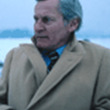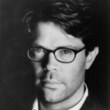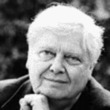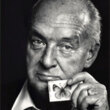Oblivion: Stories
(Libby/OverDrive eBook, Kindle)
Available Platforms
Description
More Details
Similar Titles From NoveList
Similar Authors From NoveList
Published Reviews
Booklist Review
An all-male focus group convenes in a Chicago office building to sample a new form of junk food under the omnivorous eyes of a psychotic statistician, while on the street a crowd gathers to watch a possibly armed man scale the glass tower. A journalist investigates an Indiana man who makes art out of his miraculous poo. A couple goes to a sleep clinic to resolve a snoring conflict. So it goes in Wallace's first short-story collection in five years, a high-wire performance by the star of kinetically cerebral fiction. As questing a philosopher (his last book, Everything and More BKL O 15 03, is a history of infinity) as he is a canny storyteller, the author of Infinite Jest (1996) fashions complex tales rife with shrewd metaphysical inquiries, eviscerating social critiques, and twisted humor. Profoundly intrigued with the paradoxes of being, the haphazard forging of the self, and the relentless cascade of consciousness, he has one of his obsessed narrators bemoan language's inability to convey the psyche's wildness, yet Wallace's torrential prose comes awfully close. --Donna Seaman Copyright 2004 Booklist
Publisher's Weekly Review
In his best work, Infinite Jest, Wallace leavened his smartest-boy-in-class style, perfected in his essays and short stories, with a stereoscopic reproduction of other voices. Wallace's trademark, however, is an officious specificity, typical of the Grade A student overreaching: shifting levels of microscopic detail and self-reflection. This collection of eight stories highlights both the power and the weakness of these idiosyncrasies. The best story in the book, "Philosophy and the Mirror of Nature," assembles a typical Wallaceian absurdity: a paroled, autodidactic arachnophile accompanies his mother, the victim of plastic surgery malpractice ("the cosmetic surgeon botched it and did something to the musculature of her face which caused her to look insanely frightened at all times"), on a bus ride to a lawyer's office. "The Suffering Channel" moves from the grotesque to the gross-out, as a journalist for Style (a celebrity magazine) pursues a story about a man whose excrement comes out as sculpture. The title story, about a man and wife driven to visit a sleep clinic, is narrated by the husband, who soon reveals himself to be the tedious idiot his father-in-law takes him for. While this collection may please Wallace's most rabid fans, others will be disappointed that a writer of so much talent seems content, this time around, to retreat into a set of his most overused stylistic quirks. Agent, Bonnie Nadell. 5-city author tour. (June 8) (c) Copyright PWxyz, LLC. All rights reserved
Library Journal Review
Lots of weird stories from the irrepressible author of Infinite Jest, featuring such characters as a parolee who carefully guards his spider collection. (c) Copyright 2010. Library Journals LLC, a wholly owned subsidiary of Media Source, Inc. No redistribution permitted.
Kirkus Book Review
Media overkill and other forms of contemporary paranoia and mendacity take their lumps in this third collection from the brainy postmodernist author (Brief Interviews with Hideous Men, 1999, etc.). The most conventional of its eight impressively varied stories is "The Surfing Channel," the raffish satirical account of trendy Style magazine's research into the personal history of a popular sculptor who works in the medium of human excrement. How he produces his art is about what you'd expect ("Maybe his colon somehow knows things his conscious mind doesn't"), and Wallace's deadpan depiction of his manufactured celebrity is both hilarious and, uh, fundamentally silly. Elsewhere, we encounter an ad agency manipulating public hunger for a cholesterol-laden product ("Mr. Squishy"), a possibly suicidal yuppie devoted to obsessive analysis of his own "fraudulence" ("Good Old Neon"), and the story (told in conversations overheard during a business flight) of an "omniscient child" born in a Third World rain forest and commercially exploited by his fellow villagers ("Another Pioneer"). But Wallace is as versatile as he is facile, capable of such contrasting stunners as a blistering vignette that describes in headlong charged prose the accidental severe burning of a toddler and his parents' panicked efforts to save his life ("Incarnations of Burned Children") and the volume's two standout pieces. In "The Soul is Not a Smithy," a depressed, lonely father sorrowfully recalls a violent episode at his son's elementary school, an episode that the distracted boy survived almost without noticing it: a terrific story, in which the generation gap yawns unbridgeably. Then there's "Oblivion," the narrative of a 40-ish husband whose wife objects to his nonexistent snoring, leading him to an Orwellian Sleep Clinic, and to question everything he thinks he knows about himself. This ingenious anatomy of incompatibility perfectly illustrates Wallace's genius for combining intellectual high seriousness and tomfoolery with compassionate insight into distinctively contemporary fears and neuroses. One of our best young writers just keeps getting better. Copyright ©Kirkus Reviews, used with permission.
Booklist Reviews
An all-male focus group convenes in a Chicago office building to sample a new form of junk food under the omnivorous eyes of a psychotic statistician, while on the street a crowd gathers to watch a possibly armed man scale the glass tower. A journalist investigates an Indiana man who makes art out of his "miraculous poo." A couple goes to a sleep clinic to resolve a snoring conflict. So it goes in Wallace's first short-story collection in five years, a high-wire performance by the star of kinetically cerebral fiction. As questing a philosopher (his last book, Everything and More [BKL O 15 03], is a history of infinity) as he is a canny storyteller, the author of Infinite Jest (1996) fashions complex tales rife with shrewd metaphysical inquiries, eviscerating social critiques, and twisted humor. Profoundly intrigued with the paradoxes of being, the haphazard forging of the self, and the relentless cascade of consciousness, he has one of his obsessed narrators bemoan language's inability to convey the psyche's wildness, yet Wallace's torrential prose comes awfully close. ((Reviewed May 15, 2004)) Copyright 2004 Booklist Reviews.
Library Journal Reviews
Lots of weird stories from the irrepressible author of Infinite Jest, featuring such characters as a parolee who carefully guards his spider collection. Copyright 2004 Reed Business Information.
Publishers Weekly Reviews
In his best work, Infinite Jest, Wallace leavened his smartest-boy-in-class style, perfected in his essays and short stories, with a stereoscopic reproduction of other voices. Wallace's trademark, however, is an officious specificity, typical of the Grade A student overreaching: shifting levels of microscopic detail and self-reflection. This collection of eight stories highlights both the power and the weakness of these idiosyncrasies. The best story in the book, "Philosophy and the Mirror of Nature," assembles a typical Wallaceian absurdity: a paroled, autodidactic arachnophile accompanies his mother, the victim of plastic surgery malpractice ("the cosmetic surgeon botched it and did something to the musculature of her face which caused her to look insanely frightened at all times"), on a bus ride to a lawyer's office. "The Suffering Channel" moves from the grotesque to the gross-out, as a journalist for Style (a celebrity magazine) pursues a story about a man whose excrement comes out as sculpture. The title story, about a man and wife driven to visit a sleep clinic, is narrated by the husband, who soon reveals himself to be the tedious idiot his father-in-law takes him for. While this collection may please Wallace's most rabid fans, others will be disappointed that a writer of so much talent seems content, this time around, to retreat into a set of his most overused stylistic quirks. Agent, Bonnie Nadell. 5-city author tour. (June 8) Copyright 2004 Reed Business Information.
Reviews from GoodReads
Citations
Foster Wallace, D. (2004). Oblivion: Stories . Little, Brown and Company.
Chicago / Turabian - Author Date Citation, 17th Edition (style guide)Foster Wallace, David. 2004. Oblivion: Stories. Little, Brown and Company.
Chicago / Turabian - Humanities (Notes and Bibliography) Citation, 17th Edition (style guide)Foster Wallace, David. Oblivion: Stories Little, Brown and Company, 2004.
Harvard Citation (style guide)Foster Wallace, D. (2004). Oblivion: stories. Little, Brown and Company.
MLA Citation, 9th Edition (style guide)Foster Wallace, David. Oblivion: Stories Little, Brown and Company, 2004.
Copy Details
| Collection | Owned | Available | Number of Holds |
|---|---|---|---|
| Libby | 1 | 1 | 0 |




































